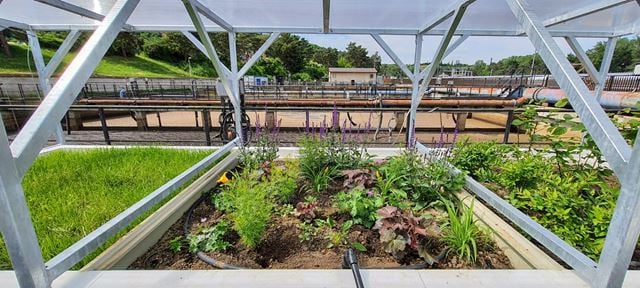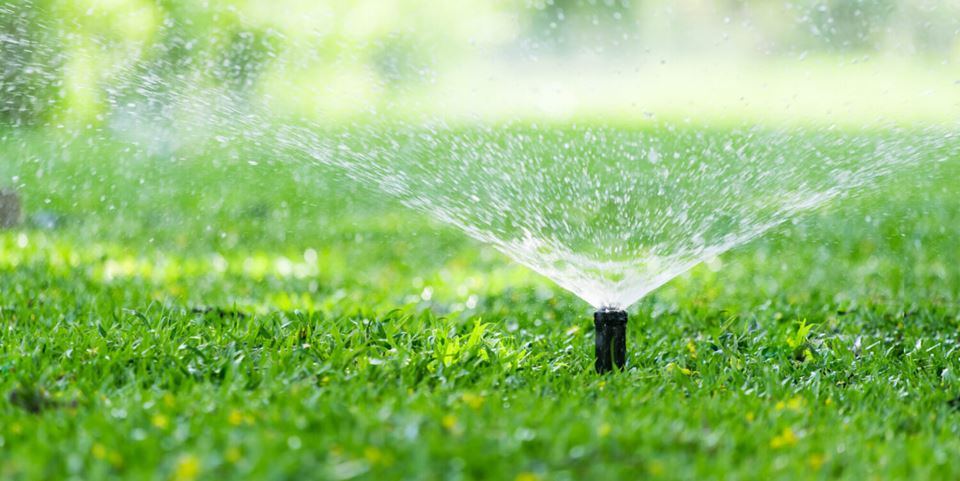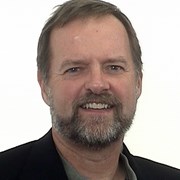Clean water is becoming a scarce resource, and one in four people in the world have no access to a safe source of drinking water. Population growth and climate change are making water shortages even worse. For this reason, we have to be innovative and utilise our water resources more intelligently.
“Wider Uptake” is an EU-funded project that is testing a variety of ways of reusing water resources in five different countries.
“The barriers that inhibit water reuse are common to many countries, so our aim is to identify the best solutions together”, says Herman Helness. He is a Senior Research Scientist at the Norwegian research organisation SINTEF and coordinates the project.
And the issue here isn’t primarily one of technology, he says. Obstacles to water reuse are rooted mainly in existing regulations and a lack of business models.
For example, treated wastewater can be used to irrigate urban green spaces and agricultural land, and this is now being tested in demo projects in Ghana, the Czech Republic and Italy.
“In order to use wastewater for large-scale irrigation, we first have to show that the quality of the water is good and that it doesn’t contain any harmful substances”, says Helness.
Facts about "Wider Uptake":
WIDER UPTAKE is an EU-funded project that brings together researchers, water and wastewater companies and other businesses from five countries. The aim is to identify how best to exploit available water resources, limit emissions and discharges, and develop sustainable business models. A variety of demonstration projects are being carried out to test circular economic models, and the results will be used to compile a set of guidelines for water-smart solutions. For more details, visit the website www.wider-uptake.eu.
The aims of the water treatment plant operators and other participants in the demo projects include the following:
- To use treated wastewater to irrigate farmland and urban green spaces.
- To recover phosphorous and nitrogen from wastewater for use as fertiliser and for soil improvement (links to two articles).
- To develop building materials manufactured from both cellulose fibres extracted from wastewater and calcite, which is a residual product from the purification of drinking water.
- To manufacture biocoal from wastewater sludge with the aim of replacing charcoal currently used in the Ghanaian textile industry.
Green parks in Prague irrigated using wastewater
The Czech Republic has also been suffering from a lack of rain and water shortages for some time, and there is great willingness to try out new solutions.
Trials being carried out in Prague using wastewater to irrigate city parks are revealing promising results. The first step is t to demonstrate that it is both safe and profitable for the community.
Scientists at the city’s wastewater treatment plant are testing a variety of water qualities for the irrigation of lawns, bushes and flower beds. They are using untreated water from the river and three different qualities of water taken from the plant; treated, extra pure and polished. To date, testing has shown that all these water types are good enough for irrigating plants and flower beds.

Treated wastewater is safe to use in gardening. Here flowers are grown in Prague for Wider Uptake
The regulations need changing
The technical solutions are in place and the water quality has been shown to be acceptable. The next challenge is to amend the regulations so that an effective business model can also be established.
It is currently not permitted to use wastewater for irrigation.
The EU has issued a separate directive governing the reuse of wastewater, but its application must be approved at national level. Researchers have thus held a number of meetings with the authorities, including the Mayor of Prague and the Czech Ministry of Agriculture.
Treated Wastewater for urban farming in Ghana
Access to clean water is a major challenge in Ghana too.
The country has experienced continuous population growth and urbanisation since the 1950s, and shortages of treated water are a problem, especially in urban areas. However, there is no national strategy for reuse of water, yet untreated wastewater is currently used to irrigate vegetable crops in urban areas.
Analyses show that the vegetables do not contain elevated values of harmful substances, but many people are sceptical of eating vegetables that have been watered using wastewater.
“An information campaign is going to be run to persuade people that the vegetables being produced from the use of treated wastewater would not be harmful to their health,” says Gordon Akon-Yamga, a researcher at Ghana’s Council for Scientific and Industrial Research.

Urban farmers in Ghana are using wastewater to irrigate their crops. Photo: Gordon Akon-Yamga
The long-term aim is to formulate public policies that promote wastewater treatment plants to incorporate water reuse in their design and ensuring that farmers get better incomes to enable them pay for the treated wastewater.
It will also be necessary to establish national standards for various forms of water reuse. Currently, Ghana applies WHO standards for limits on the concentrations of harmful substances in water.
Hardly profitable in Norway
So, when will we start to reuse wastewater in Norway?
“It’s far from certain that this will be profitable in the near future”, says Herman Helness.
Wastewater decontamination is a very energy-demanding process. We still have large volumes of water here in Norway, and it will not be sustainable to dedicate resources for this purpose.
There is much more to be gained by improving the distribution network and preventing treated water from leaking form the supply pipes.
Other relevant initiatives for saving water include the use of grey water (derived from sinks, showers and washing machines) for toilet flushing.
The Norwegian pilot projects incorporated as part of WIDER UPTAKE are thus looking into the recovery of other resources from wastewater, including phosphorous that can be used in fertilisers.

The Prague water treatment facility is located on an island in the river Vltava (Moldau). Here they irrigate lawns, bushes and flower beds using water from a variety of sources. Photo: Dr. Martin Srb, PVK a.s.
Defining what it is to be ‘water-smart’
“Common to all pilot projects incorporated as part of WIDER UPTAKE is the need to show that solutions are sustainable and ‘water-smart’”, says Helness.
The researchers are thus developing a method for measuring so-called ‘’water smartness’ and sustainability.
“A Water Smart Society is a society in which the true value of water is recognised and realised, and all available water sources are managed in such a way that water scarcity and pollution are avoided, and close loops and symbiosis are created to foster a circular economy and optimal resource efficiency.”
“It is possible to be sustainable without being water-smart, but not the other way round”, says Helness. “A water-smart solution is sustainable and must also be financially profitable for the water industry”, he says.
The key here is to achieve better interaction between the water sector and the industries that are planning to use the resources derived from the water.
To date, the demo projects incorporated as part of WIDER UPTAKE have demonstrated that there is a lot to be gained from the smarter utilisation of water.
The UN’s Sustainable Development Goal 6: Clean water and sanitation
Clean water is perhaps the most important prerequisite for good health. As many as 1 in 4 of people in the world does not have access to safe sources of drinking water. Even more have no access to a toilet or standard sanitary facilities. It is not only uncomfortable and degrading not to be able to go to the toilet, but it is also very likely that a lack of opportunity to practice good hygiene will increase the likelihood of spreading infectious diseases.
There is sufficient freshwater in the world if we simply manage it in the right way. However, economics and a lack of infrastructure commonly stand in the way of universal access. Moreover, in many places, population growth and climate change are causing water shortages to become more acute. It is therefore important to protect the sources of drinking water that we have, and to invest in new water and sanitary facilities in regions that are without them.
Target linked to water reuse: (6a)
By 2030, to expand international cooperation and capacity-building support to developing countries in water- and sanitation-related activities and programmes, including water harvesting, desalination, water efficiency, wastewater treatment, recycling and reuse technologies.
https://www.un.org/sustainabledevelopment/water-and-sanitation/


